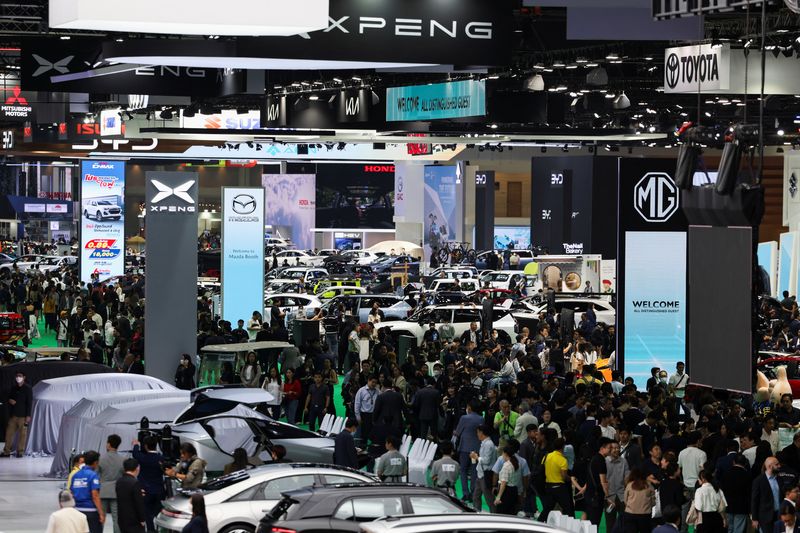
By Chayut Setboonsarng and Thanadech Staporncharnchai
BANGKOK (Reuters) – Thailand is in early discussions with carmakers to introduce a car trade-in and scrapping scheme in a bid to revive an industry hit by its biggest crisis in decades, three industry officials and two sources said.
Output in the Southeast Asian automobile hub, besieged by a flood of new EVs, has plummeted for more than a year, following a slowdown in exports and weak domestic sales, while tighter credit at a time of soaring household debt hit vehicle buying.
“Japanese automotive companies, including Toyota, have been continuously discussing End of Life Vehicle schemes under the initiatives and direction of Thai Government to reduce aged vehicles which have a tendency to have higher emissions,” Toyota’s Thai unit said in a statement to Reuters.
“The framework and mechanism are being discussed among industry, government and academia,” it added.
The discussions are in early stages and have not previously been reported. The scheme would see consumers trade in old vehicles in exchange for a discount on their next vehicle purchase, with traded-in vehicles scrapped, the officials said.
“Car makers are pushing hard for this because they want to sell cars,” Sompol Tanadumrongsak, president of the Thai Auto-Parts Manufacturers Association, told Reuters, adding that a 10-year age threshold was being considered for scrapped vehicles.
The association is among industry groups that holds monthly meetings with government agencies, including the investment board and the industry ministry.
Officials at Thailand’s industry ministry did not respond to telephone calls from Reuters to seek comment, however.
Auto production in Thailand fell a tenth last year to a four-year low, with domestic sales and exports falling 26% and 8.8%, respectively. Production fell in January for an 18th consecutive month, plunging more than 24% on a yearly basis.
The industry, which accounts for 10% of GDP, wants to revive sales amid a sluggish economy and disruption caused by Chinese EV makers such as BYD and Great Wall Motors which have poured more than $3 billion into facilities in Thailand.
Those factories are pumping out new cars and slashing prices, challenging the dominance of Japanese auto makers such as Toyota and Honda, making a trade-in scheme more attractive for buyers.
“There have been discussions about the measure but it has not been finalised yet,” said Surapong Paisitpattanapong, a spokesperson for the automotive division of the Federation of Thai Industries, which sprawls across 47 sectors.

